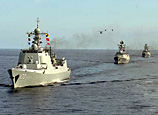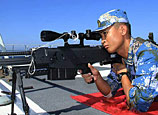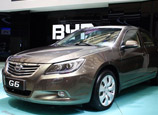
BEIJING, March 28 (Xinhua) -- A first round of Free Trade Area (FTA) talks among China, Japan and the Republic of Korea (ROK) ended on Thursday with small but significant progress.
After 10 years of preparation, the three neighboring countries are embarking on the road to achieve economic integration in East Asia, where common benefits and conflicts are intertwined in a complex and delicate web.
"At this round of talks, the three countries adopted a set of detailed rules on negotiations that include basic principles and an index of negotiations while also discussing related administrative issues, such as the scope of Korea-China-Japan FTA negotiations and how to set up working groups, that will be the foundation of future negotiations," according to a statement released after the meeting.
The three sides have agreed to hold two more rounds of talks within 2013, with the second round scheduled for June or July in China.
Although only administrative details were agreed at the meeting, the first round of talks provide reassurance that trust can be built among these neighbors.
The lengthy preparation underlines the intricacy of the issue. The three nations' industrial and trade structures are complementary, but political ties are turbulent amid territorial rifts between Japan and China, and Japan and the ROK.
Still, it is better to launch talks sooner rather than later. Covering the world's second- and third-largest economies and a regional economic hub which produces 20 percent of the world's economic output, the envisioned FTA has enormous significance in facilitating regional trade. The benefits for neighboring countries to set up the FTA are even bigger.
Official research shows that the FTA, if established, will boost China's economic growth by 1.1 to 2.9 percent, Japan's by 0.1 percent to 0.5 percent, and the ROK's by 2.5 percent to 3.1 percent.
The countries have reaped enormous benefit from foreign trade. Creating a set of integrated and coordinated trade rules and cutting tariffs will improve their trade structures and competitive edge, and revitalize the regional economy when prosperity becomes more inter-dependent than ever.
The negotiation starts at a time when FTA blueprints are being mapped out in many continents and regions such as the U.S.-led Trans-Pacific Partnership and the Transatlantic Trade and Investment Partnership arrangement between the United States and the European Union.
Free trade could create a win-win situation for the participants and China is a staunch supporter of FTAs. China is open to all sorts of such zones as long as they generate common prosperity without any political bias.
The launch of the tripartite talk is a good beginning, but twisted consultations lie ahead. While China and the ROK share smooth political and economic ties, their rocky relations with Japan provide a major uncertainty.
Besides, tremendous technical barriers need to be addressed such as Japan's protection of farm produce exports.
East Asia can play a pivotal role in powering the global economy and safeguarding world peace. This FTA can hopefully be a catalyst for it.
















 Man's 20-year habit leads to kidney stone
Man's 20-year habit leads to kidney stone


![]()
